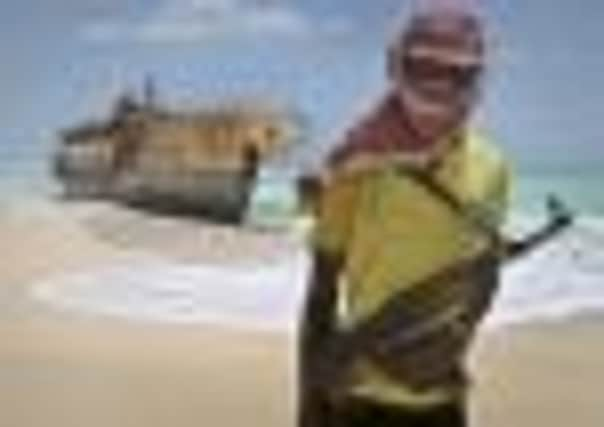Party’s over: Somali pirates all washed up


Most of the prostitutes are gone and the luxury cars repossessed. Pirates while away their hours playing cards or catching lobsters.
“There’s nothing to do here these days,” said Hassan Abdi, a high school graduate who taught English before turning to piracy in 2009. “The hopes for a revitalised market are not high.”
Advertisement
Hide AdAdvertisement
Hide AdArmed guards aboard cargo ships and an international naval armada that carries out onshore raids have put a huge dent in piracy and might even be ending the scourge.
While experts say it is too early to declare victory, the numbers are stark. In 2010, pirates seized 47 vessels. This year they have taken five.
In Galkayo, a coastal town once considered too dangerous for Westerners, prostitute Faduma Ali longs for the days when her pirate customers had money. As she smoked a hookah in a hot, airless room, she sneered as she answered a phone call from a former customer seeking some action on credit.
“Those days are over. Can you pay me $1,000?” she asked. That’s what she once got for a night’s work. “If not, goodbye and leave me alone.”
The caller, Abdirizaq Saleh, once had bodyguards and maids and the attention of beautiful women. When ransoms came in, a party was thrown, with blaring music, bottles of wine, the stimulant khat and a woman for every man. Now Saleh is hiding from creditors in a dirty room.
“Ships are being held longer, ransoms are getting smaller and attacks are less likely to succeed,” he said.
According to the EU Naval Force, Somali pirates hijacked 46 ships in 2009 and 47 in 2010. In 2011, pirates launched a record number of attacks – 176 – but commandeered only 25 ships, an indication that new on-board defences were working.
The last of the five ships hijacked this year was the Liberian-flagged MV Smyrni, taken with its crew of 26 on 10 May. They are still being held. Lieutenant Commander Jacqueline Sherriff, a spokeswoman for the EU Naval Force, said: “We have witnessed a significant drop in attacks in recent months. The stats speak for themselves.”
Advertisement
Hide AdAdvertisement
Hide AdShe attributes the fall to international military efforts – European, American, Chinese, Indian, Russian. In May, the EU Naval Force destroyed pirate weapons, equipment and fuel on land. Japanese aircraft fly over the shoreline to relay pirate activity to nearby warships.
In Hobyo, on central Somalia’s Indian Ocean coastline, fishermen say piracy began in 2005 as a way to keep international vessels from plundering fish stocks.
In the absence of law and order in a country that has not had an effective central government for two decades, ransoms grew and criminal networks planned more sophisticated operations. Now things seem to be changing.